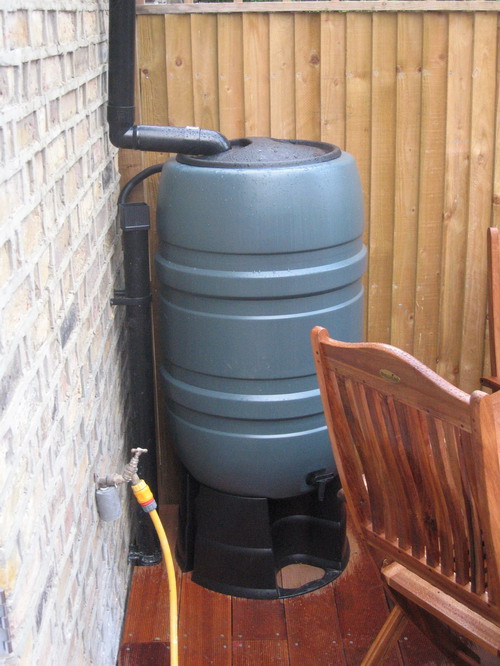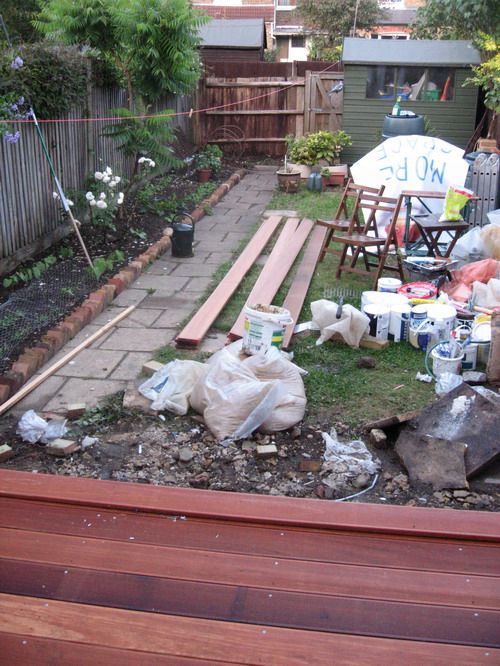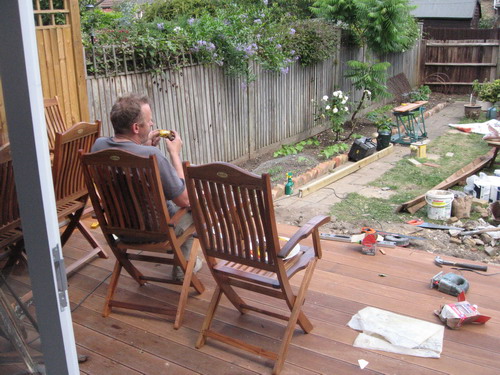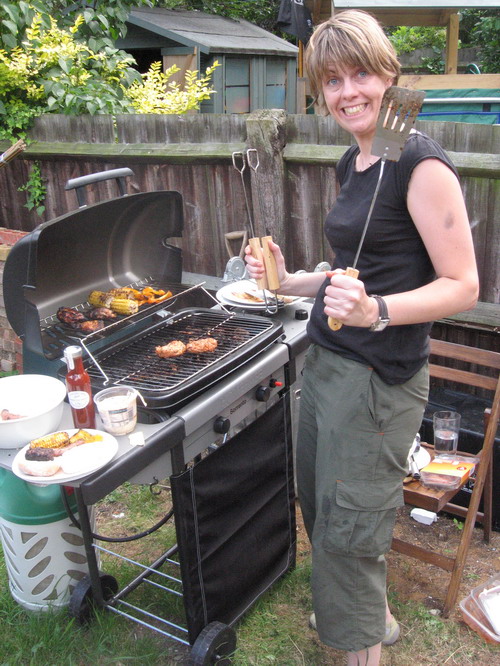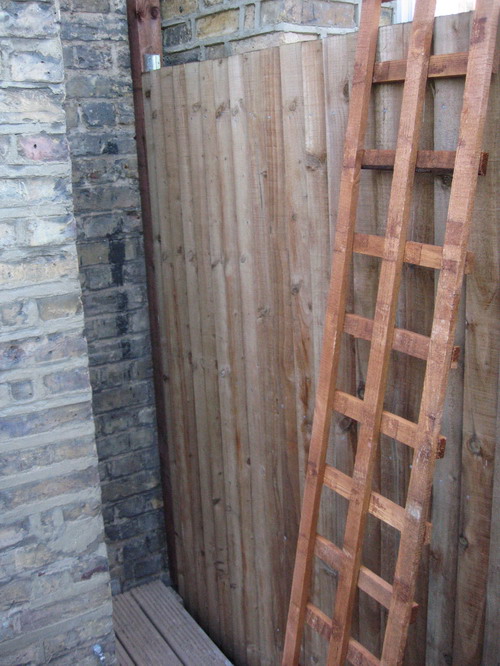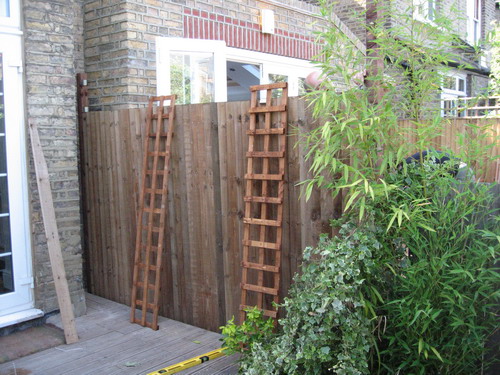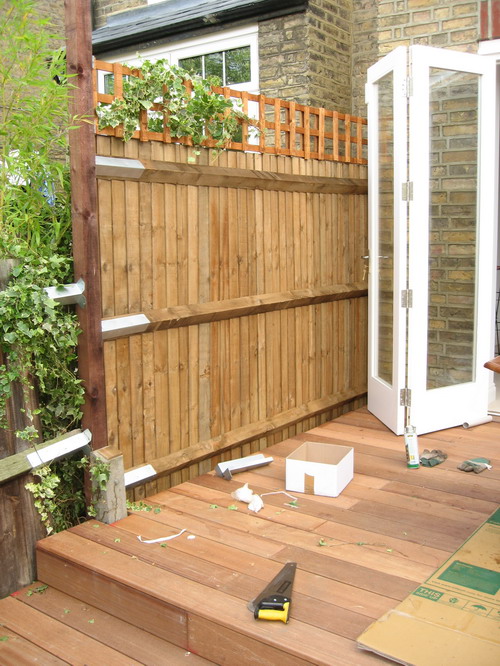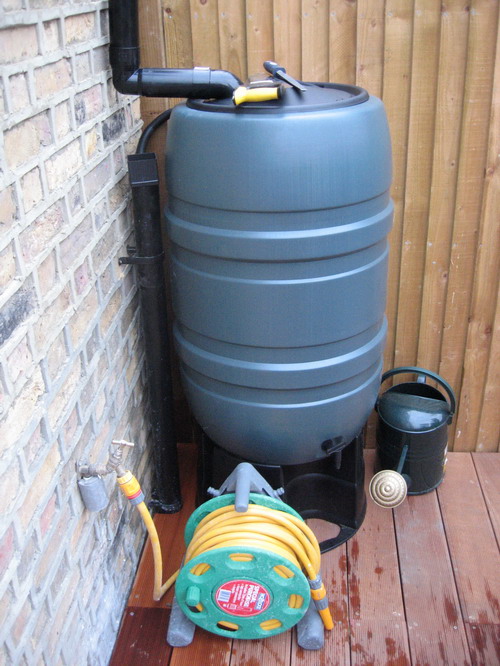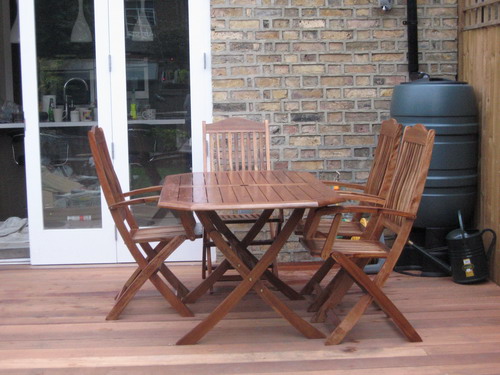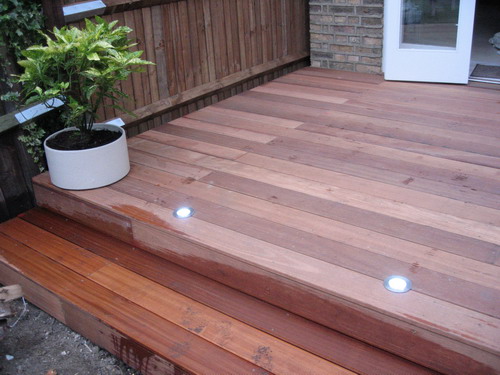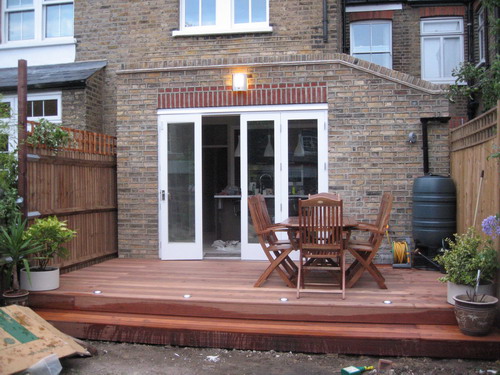Me and next door neighbour M are getting better at fencing. Yesterday’s achievement was another panel alongside the garden and two full panels at the bottom of our garden.
The old fence collapsed with the mildest encouragement and so it was a good job that we had all the materials to replace it. There have been a few burglaries around here recently so it’s good to be secure. Or more secure than the next, anyway.
New fence panel:
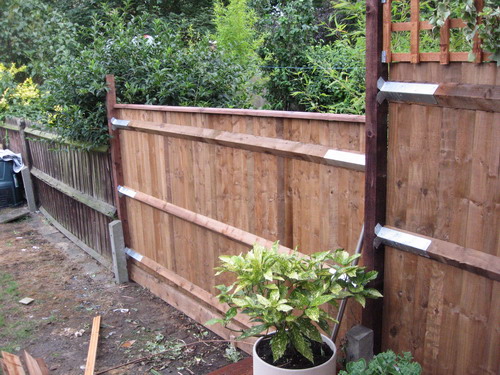
And the supplies:
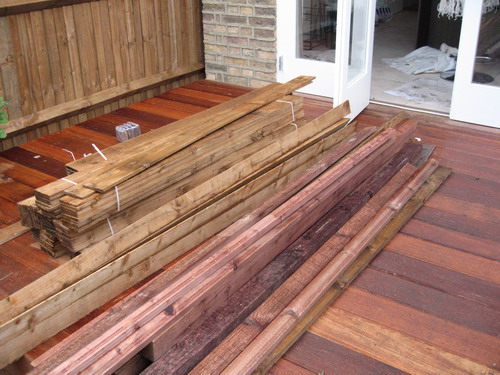
Spot the obvious flaw: (we’re fixing that next weekend…)
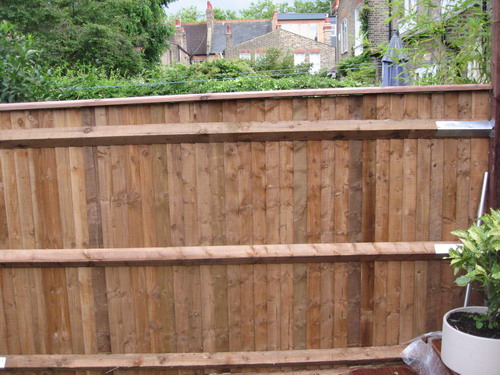
At the bottom of the garden, a new fence grew up out of the ground (this required four posts to be concreted into big holes – no small job):
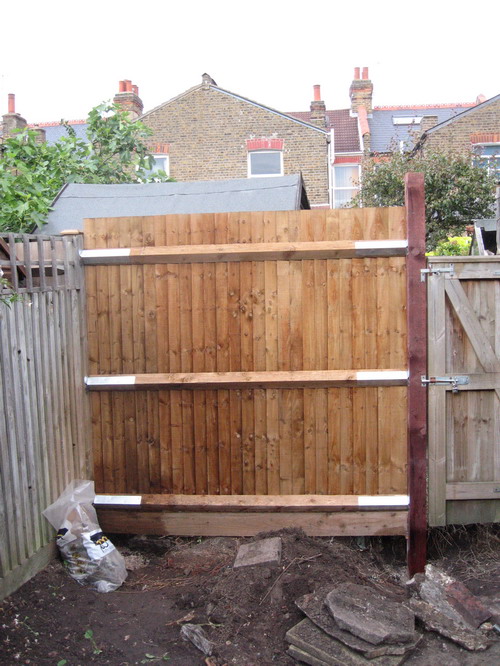
And the gate: (salvaged):
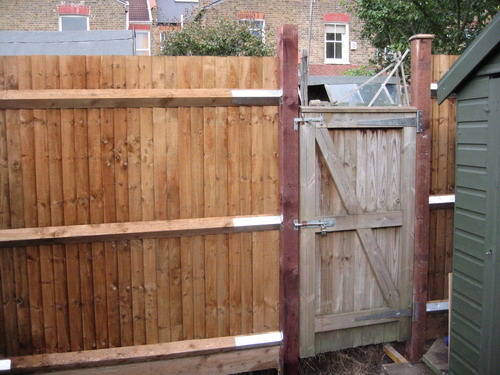
And behind the shed:
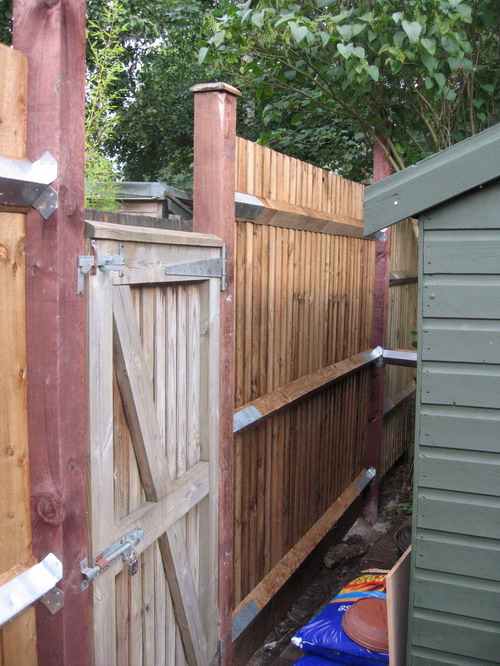
The garden getting clearer:
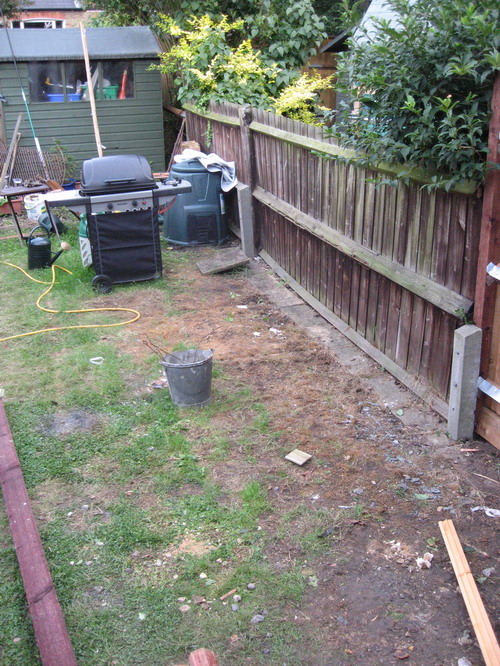
Coming on nicely:
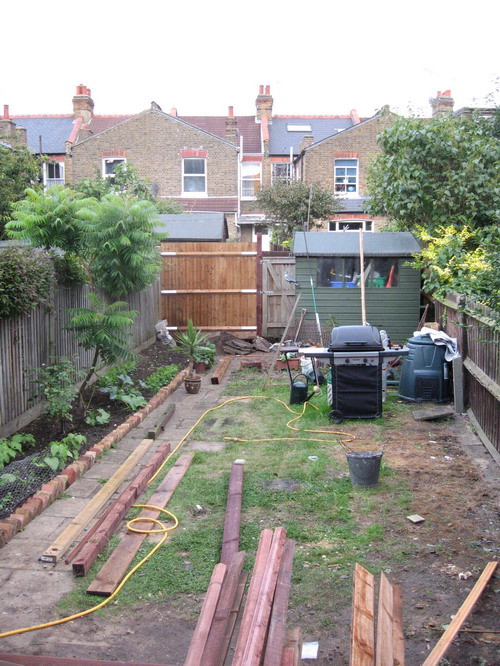
Decking and table, now usable:
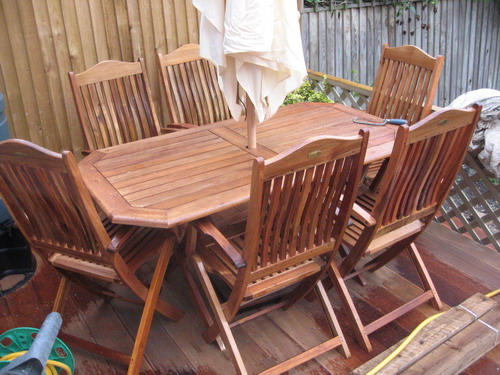
Butt of all the jokes – now full. (we need another!)
